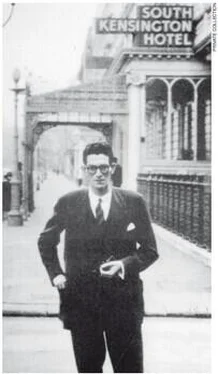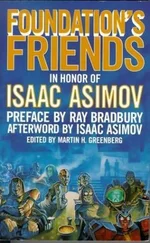Ben Macintyre - A Spy Among Friends
Здесь есть возможность читать онлайн «Ben Macintyre - A Spy Among Friends» весь текст электронной книги совершенно бесплатно (целиком полную версию без сокращений). В некоторых случаях можно слушать аудио, скачать через торрент в формате fb2 и присутствует краткое содержание. Год выпуска: 2014, ISBN: 2014, Издательство: Bloomsbury Publishing, Жанр: Старинная литература, на английском языке. Описание произведения, (предисловие) а так же отзывы посетителей доступны на портале библиотеки ЛибКат.
- Название:A Spy Among Friends
- Автор:
- Издательство:Bloomsbury Publishing
- Жанр:
- Год:2014
- ISBN:9781408851746
- Рейтинг книги:5 / 5. Голосов: 1
-
Избранное:Добавить в избранное
- Отзывы:
-
Ваша оценка:
- 100
- 1
- 2
- 3
- 4
- 5
A Spy Among Friends: краткое содержание, описание и аннотация
Предлагаем к чтению аннотацию, описание, краткое содержание или предисловие (зависит от того, что написал сам автор книги «A Spy Among Friends»). Если вы не нашли необходимую информацию о книге — напишите в комментариях, мы постараемся отыскать её.
A Spy Among Friends — читать онлайн бесплатно полную книгу (весь текст) целиком
Ниже представлен текст книги, разбитый по страницам. Система сохранения места последней прочитанной страницы, позволяет с удобством читать онлайн бесплатно книгу «A Spy Among Friends», без необходимости каждый раз заново искать на чём Вы остановились. Поставьте закладку, и сможете в любой момент перейти на страницу, на которой закончили чтение.
Интервал:
Закладка:
The Scattolini episode was deeply embarrassing, the first blemish on Angleton’s career. It also ingrained his natural propensity for extreme suspicion. His time in Britain, observing the successful Double Cross operation against the Germans, had taught Angleton ‘how vulnerable even the most supposedly secure counter-intelligence service is to clandestine penetration’. On reflection, he wondered whether Scattolini might have been a Soviet double agent, deployed to plant damaging disinformation. The duplicity of spies like Princess Pig and Virgilio Scattolini seemed to reinforce Angleton’s distrust of all but a few intimates; he became increasingly obsessed with double agents and ‘the Byzantine possibilities open to the counter-intelligence practitioner’. On Angleton’s visits to Berne, Elliott noted his American friend’s deepening mistrust, his compulsive compilation of secret files, his adherence to secrecy as a sort of religion. Every day, Angleton scoured his Rome office for bugs, ‘crawling around on his hands and knees’, convinced the Soviets were attempting to listen in on his conversations, just as he was eavesdropping on theirs. ‘His real love was unravelling the web of deception, penetration and general intrigue woven by the KGB,’ wrote Elliott. ‘Above all, he loved secrecy, perhaps even secrecy for its own sake.’
Angleton’s only real intimacy was with other spies, and he later remarked on the way friendship, secrecy and professional comradeship seemed to merge during his years in Rome. ‘We were . . . damned good friends,’ he later said. ‘I feel that’s the only way you can keep a service going.’ There was rivalry between the American and British services in many parts of the world, but Angleton and Elliott kept few secrets from one another, and fewer still from Kim Philby.
During one of Philby’s visits to Rome, Angleton described one of his proudest achievements: a bugging device planted in the offices of Palmiro Togliatti, the veteran leader of the Italian Communist Party. Togliatti had spent the war in the Soviet Union, making radio broadcasts urging Italian communists to resist the Nazis, before returning to Italy after the fall of Mussolini to serve in a democratic government of national unity. Togliatti’s links with Moscow rendered him deeply suspect in American eyes, and Angleton boasted that he was recording every word spoken in the communist leader’s office. A few weeks later, Boris Krötenschield sent a message to Moscow Centre: ‘Stanley reported that the counter-intelligence section of the OSS in Italy has set up a microphone in the building where Togliatti works, thanks to which they can monitor all conversations in that building.’
In the autumn of 1946, Philby announced that he was marrying Aileen Furse – news that came as a shock to both Elliott and Angleton, who had always assumed that the mother of Philby’s children was already his wife. Philby had hitherto refused to marry Aileen, despite her entreaties, for the simple reason that he was already married, to a foreign communist. But as he rose within MI6, Philby concluded that this particular skeleton, in a cupboard packed with such things, would have to be revealed. He approached Valentine Vivian, the man who had so casually waved him into the service in the first place, and explained that, as an impetuous youth, he had married a left-wing Austrian, whom he now planned to divorce in order to make an honest woman of Aileen. The revelation does not seem to have given Vee-Vee a moment’s concern.
Philby contacted Litzi, now living in Paris, arranged an uncontested and amicable divorce, and married Aileen a week later, on 25 September, in a civil ceremony at Chelsea registry office. Elliott, occupied with his duties in Switzerland, was unable to attend, but sent an enormous bouquet of flowers and a crate of champagne. The witnesses were Tommy Harris, the MI5 double agent-runner, and Flora Solomon, Philby’s friend and Aileen’s former employer, who had brought them together in 1939. The wedding party then repaired to the Philby family home in Carlyle Square for a bibulous party that lasted long into the night. Many friends and colleagues from MI6 turned up and drank to a delayed marriage that fitted Philby’s faintly bohemian image. One senior MI6 colleague, Jack Easton, who would go on to become deputy director, observed Kim’s obvious pride in his growing family, and reflected: ‘What a very nice chap Kim must be!’ Flora Solomon felt an almost proprietorial pride in the ‘happy ending’ for the young couple: ‘Kim, a happy and devoted father, was making a successful career in the Foreign Office, and Aileen seemed stable and content.’ As for Philby’s early communism, Solomon reflected, that ‘seemed to belong to the misty, juvenile past’.
Philby told Aileen nothing about his MI6 work, let alone his activities on behalf of Soviet intelligence. She knew only that he worked for the Foreign Office. But she, too, was concealing something. For years, unknown to Philby, she had suffered from a psychiatric disorder, later known as Münchausen’s syndrome, that manifested itself in episodes of self-harm and bouts of pyromania in order to attract sympathy and attention. As a teenager she had opened an appendix wound and infected it with her own urine, considerably prolonging her recovery. ‘Awkward of her gestures and unsure of herself in company,’ Aileen’s mental health was deteriorating, and the ‘accidents’ and illnesses were multiplying. Perhaps Aileen’s distress reflected the first stirrings of doubt; she may already have begun to wonder whether her husband was really the charming, uxorious, popular, straight-batting bureaucrat that he seemed. He tended to vanish without warning or explanation, sometimes disappearing for twenty-four hours at a time, returning hungover and tight-lipped. Aileen came from a conventional background, of Girl Guides, colonial servants, marital vows and simple patriotism. Flora Solomon considered her ‘incapable of disloyalty, either personal or political’, but Aileen would not have been human had she not begun to suspect that her husband might be seeing someone else. If she did have her doubts, she told nobody. Mrs Philby, the former undercover detective at M&S, was also good at keeping secrets.
Philby’s decision to regularise his domestic arrangements was a sound career move, if he was to become head of MI6. Elliott harboured similar ambitions. But while Elliott had already spent time in the field, in Istanbul and Berne, Philby had so far spent most of his intelligence career behind a desk. Late in 1946, Menzies informed Philby that in order to gain ‘all round experience’, he would be following in Elliott’s footsteps, to Turkey, as MI6 station chief. Section IX was taken over by Douglas Roberts, the veteran officer whose fear of flying had enabled Philby to seize control of the Volkov case. Guy Liddell of MI5 was ‘profoundly sorry’ to learn that Philby was leaving London, and doubted his successor would be as good. But Philby was happy to be moving on. Istanbul was the ‘main southern base for intelligence work against the Soviet Union and socialist countries of the Balkans and central Europe’, and his new assignment was a further sign that he was heading for the top. ‘Kim gave a large farewell party,’ Liddell of MI5 recorded in his diary, ‘which consisted mostly of representatives of our office, SIS and the Americans. He is off to Turkey.’
On his way, Philby stopped in Switzerland to see Elliott, who provided him with a detailed briefing on what to expect in Istanbul, and handed over the contents of his contact book. Istanbul’s significance as a spy centre was even greater in 1947 than it had been during the war. Tension was mounting between Turkey and the USSR amid fears of a full-scale confrontation between East and West; from Turkey, Western intelligence sought to infiltrate spies and insurgents into the Soviet Union, and vice versa. Before leaving London, Philby had been told that if the opportunity arose, he could set himself up as a ‘coat trailer’, spy parlance for an agent who seeks to be recruited by the enemy, in order to turn double agent. Philby was ‘given permission to play the full double game with the Russians’. Here was an additional layer of protection: if Philby was discovered to be in contact with the Soviets, he had a cast-iron explanation.
Читать дальшеИнтервал:
Закладка:
Похожие книги на «A Spy Among Friends»
Представляем Вашему вниманию похожие книги на «A Spy Among Friends» списком для выбора. Мы отобрали схожую по названию и смыслу литературу в надежде предоставить читателям больше вариантов отыскать новые, интересные, ещё непрочитанные произведения.
Обсуждение, отзывы о книге «A Spy Among Friends» и просто собственные мнения читателей. Оставьте ваши комментарии, напишите, что Вы думаете о произведении, его смысле или главных героях. Укажите что конкретно понравилось, а что нет, и почему Вы так считаете.












